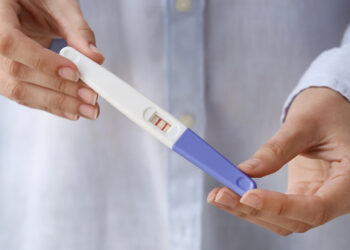
Losing someone we love can affect us in many ways
Vidar Nordli-Mathisen/Unsplash
People who experience long periods of intense grief after the death of a loved one seem to have a higher risk of dying within the next decade than those who come to terms with their loss more easily.
Numerous studies have linked bereavement to poor health outcomes, such as raised blood pressure. But most of these only tracked the bereaved for a few years after their loss, says Andreas Maercker at the University of Zurich in Switzerland, who wasn’t involved in the latest research.
Now, Mette Kjærgaard Nielsen at Aarhus University in Denmark and her colleagues have examined how grief is linked to mortality up to a decade later.
The researchers used a national registry to obtain information on people who were being treated for a terminal condition. They then recruited more than 1700 of these people’s loved ones, such as a parent or partner, to complete a series of surveys – taken before their death and six months and three years after. These asked the loved ones – who were aged 62, on average – questions, like whether they were trying to avoid reminders that the person was ill or dead.
The team found that 670 of the loved ones were persistently experiencing low levels of grief after the death, such as feeling slightly confused about their role in life, while 107 of them were persistently experiencing high levels of grief, such as overwhelmingly feeling this way. The remaining participants experienced either grief that declined or delayed grief that kicked in some time after their loss.
Next, the researchers analysed the loved ones’ medical records 10 years after their loss. The death rate in the high-grief group was 88 per cent greater than in the low-grief one.
“There’s a saying that bereavement breaks hearts,” says Maercker. The findings support the idea that prolonged, intense grief puts a strain on the body, leading to earlier death, he says. It may also bring about lifestyle changes, as bereaved people might be more likely to skip meals or be inactive.
Only 17 per cent of the loved ones had been diagnosed with a medical condition at the start of the study, but Nielsen says this was more common among people in the high-grief group. Higher rates of pre-existing conditions may partly explain why members of this group were more likely to die during the follow-up period, she says. It is also possible that poor health may intensify grief, says Maercker.
Offering extra support to people experiencing severe, prolonged grief – regardless of whether they have a condition themselves – could save lives, he says.
Topics:
Source link : https://www.newscientist.com/article/2489763-intensely-grieving-a-loved-one-could-shorten-a-mourners-life/?utm_campaign=RSS%7CNSNS&utm_source=NSNS&utm_medium=RSS&utm_content=home
Author :
Publish date : 2025-07-25 05:00:00
Copyright for syndicated content belongs to the linked Source.










